
80-year-old Talkar, a Bene Israeli Jew is heading to the local synagogue, a daily ritual. Dongri, a predominantly Muslim neighbourhood in south Mumbai, has been his home from birth.
“I have lived here all my life,” says the retired bank manager.
“My entire family, including my parents and siblings, migrated to Israel thirty-five ago. I have no relatives left here. They kept calling me for a long time but some sort of attachment keeps me here. I want to die in India and be buried here.”
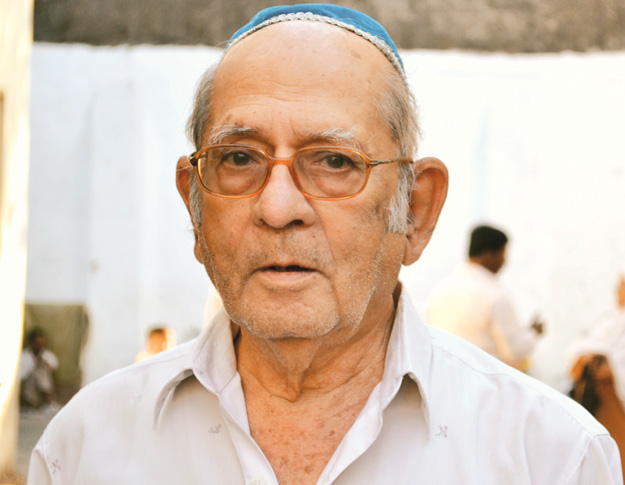
Isaac Talkar. PHOTO: SHAI VENKATRAMAN
Once a sizeable presence, today there are barely 4,000 Jews left in India. Most migrated abroad and those who have stayed on are largely concentrated in Mumbai, in the old Muslim neighbourhoods. There are two distinct Jewish communities with deep roots in the city. The Bene Israelis, who claim to be descendants of one of the lost tribes of Israel, arrived in India about 2,500 years ago, shipwrecked off the Konkan coast. Then there are the Baghdadi Jews who immigrated to India from Iraq as merchant traders during the British Raj.
“Traditionally, Jews and Muslims have occupied the same neighbourhoods in Mumbai,” says Judah Samuel, a Bene Israeli and a trustee of the Shaare Raason synagogue in Dongri. Samuel’s great grandfather Abraham Reuben Kamarlekar was president of the Jewish Association in Karachi before Partition. His mother’s side of the family migrated to India after 1947.
“It was natural the Jews and Muslims would cluster in the same areas,” he says. “Both are religions of the book. They have halal, we have kosher. Both do not eat pork. They pray five times a day while we pray three times.”
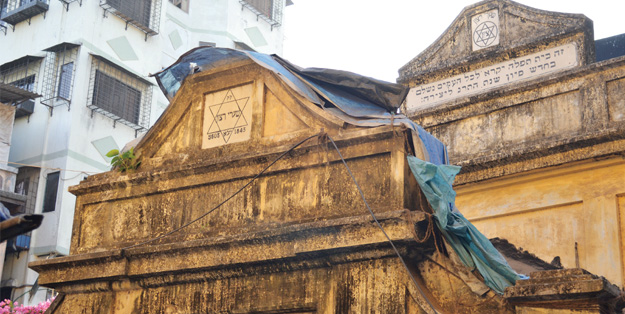
Shaare Raason syngagogue. PHOTO: SHAI VENKATRAMAN
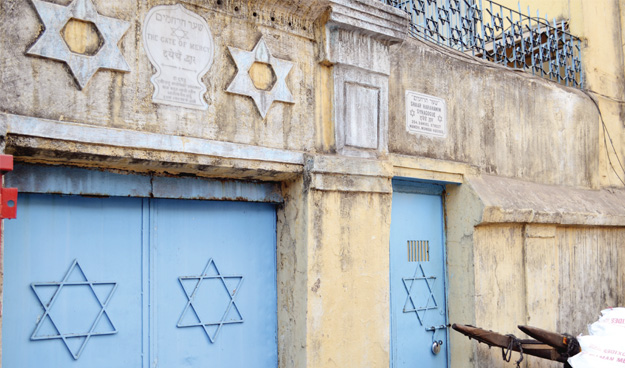
Gates of Mercy syngagogue. PHOTO: SHAI VENKATRAMAN
Not much has changed since those early days. Most of Mumbai’s eight Jewish synagogues are located in the Muslim neighbourhoods of Byculla, Mazgaon and Dongri. The Gates of Mercy, the city’s oldest synagogue, is popularly called juni (old) masjid. The Magen David synagogue in Byculla had a Muslim custodian for decades.
“The caretaker of the Bene Israeli cemetery in Mazgaon is a Muslim,” says film critic and Mumbai historian Rafique Baghdadi. “About 98% of the students attending the Jewish schools in the central Mumbai area are Muslims.”
However, even this long and largely peaceful association has, at times, been affected by the conflict playing out between Israel and the Arab world.
“I remember that during the six-day Arab-Israeli war, an effigy of Moshe Dayan [a prominent Israeli military leader and politician] was burnt in my neighbourhood,” says Judah Samuel. “I was 10 years old and my family was very frightened because we were the only Jewish family in that area. But no one said or did anything to us.”
The way in which the Jewish community has assimilated has certainly helped in keeping the harmony intact.
“They speak Marathi and have a very distinctive Indian identity,” says writer, researcher and journalist Sameera Khan who has spent the last decade researching old Muslim neighbourhoods in Mumbai and recently co-authored a book on women and public space. “If they had been vocal about their affiliation with Israel, had taken out morchas (protests) supporting Israel, then perhaps there would have been an issue. As a result [of their assimilation], Indian Muslims have never felt uncomfortable or antagonistic towards them.”
Is this reticence towards the conflict born out of a desire for self-preservation? Albert Talegawkar, a solicitor whose family migrated to Israel many years ago, has an answer. “Our community is very microscopic,” he says. “We are not affected by what is happening in Israel. We do feel bad that there is a lot of publicity being given to the Israeli attacks while no one is talking about the rocket attacks from Gaza. But it’s not like we support Israel blindly.”
Isaac Talkar’s friend, Menahim Asher, once captain of Dongri’s Mohameddan XI cricket team says, “our relatives are in Israel but our hearts are in India. Israel is imposed on the Arabs. Just because our forefathers were there at some point does not mean we have the right to take over.”
Talkar adds, “We have never felt anger from their [the Muslims] side. Even when the conflict was at its worst we would visit their homes and they would come over.”
“It is sad that Arabs and Jews are fighting because we come from the same father, Abraham,” says Solomon Sopher, a Baghdadi Jew and a prominent figure in the community. “I raise horses and most of my trainers are Muslims. They are also good friends. Many of my business partners are Muslims.”

The close ties of cooperation and commerce help explain why relations between the two communities remain intact even after the 2008 Mumbai attacks, when terrorists stormed into the Chabad House, a Jewish outreach centre in Colaba. Six of its occupants, including the rabbi and his pregnant wife, were killed. Their two-year-old son Moshe survived the attack, rescued by his Indian nanny. After this, the world cast a spotlight onto Mumbai’s Jewish community and there were fears of a possible backlash.
“I was concerned about how the local Jewish community would react,” says Khan. “The expat Jews did [react]. But the local Jewish population did not get involved in the reactions. Perhaps they felt that being a small minority they should not draw attention to themselves. I am glad they did not identify Indian Muslims as being the same as terrorists. They saw the difference. Similarly, Indian Muslims do not see Indian Jews as being the same as Israelis. They see them as another local community around whom they live and work.”
“The Chabad people were not Indian Jews,” says Talegawkar. “The terrorists were targeting foreigners.”
Four years later, the reminders of those attacks are still visible. Synagogues in Mumbai now have CCTVs inside and there is heavy police presence outside. And yet, equally strong and eloquent are the expressions of brotherhood.
“We love the Indian Muslims very much,” says Sopher. “During Ramzan and Eid we give our grounds without charging a fee. We let our compounds out to the Bohri community for their festivals and marriages.”
“Post 26/11, nothing has really changed,” adds Talkar. “Even today I get biryani!”.
Published in The Express Tribune, Sunday Magazine, January 6th, 2013.
Like Express Tribune Magazine on Facebook to stay informed and join the conversation.
COMMENTS (4)
Comments are moderated and generally will be posted if they are on-topic and not abusive.
For more information, please see our Comments FAQ














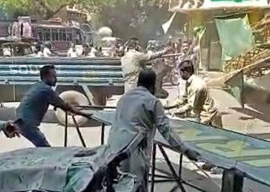

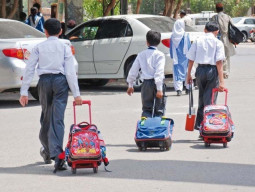

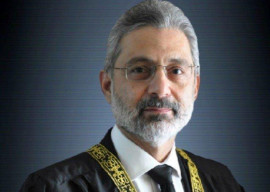
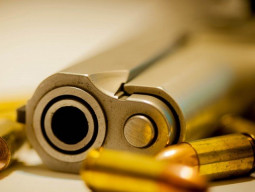





















When Nazi Germany deported hundreds of thousands of its Jewish citizens, it crossed the threshold to barbarism. Many European states under German occupation, including the Vichy Government of France, surrendered to Nazi pressure and deported their gypsy and Jewish citizens, to be taken often to concentration camps. Ironically, it was a Muslim country which stood up for the right of citizenship.
Morocco was a French protectorate in which effective power was exercised by the French Resident-General while the Sultan, then Mohammed V, was a symbolic repository of Moroccan sovereignty. Morocco had a sizable Jewish population and, following orders from Vichy, the Resident-General asked the king to sign a decree to deport Morocco's Jewish citizens. Sultan Mohammad V refused; it was his fundamental obligation, he said, to protect citizenship right. His resistance marked a new phase in Moroccan nationalism, and Mohammed V, father of reigning King Hassan II, became a hero to his people.
Eqbal Ahmad, Question of Rights (Dawn, 27 September 1992)
@Aurangzeb Right here: one of the first stories I commissioned for the magazine: http://tribune.com.pk/story/113103/in-search-of-the-jews-of-karachi/
Good piece, Shai! Tribune, there needs to be a good piece on the Jewish community of Karachi.
It is quite telling that many Jewish communities around the world are often found in Muslim neighborhoods. Many of them took refuge from Russian Pogroms and Spanish Inquisitions in Muslim controlled territories and for most part of their history were protected by Muslims. The recent tensions between Muslims and Jews have theirs roots in the Arab-Israeli conflict. This also shows that conflicts that appear religious in nature are hardly so and it is the politics where one finds reasons for conflicts and wars. Religion often is co-opted in these conflicts.